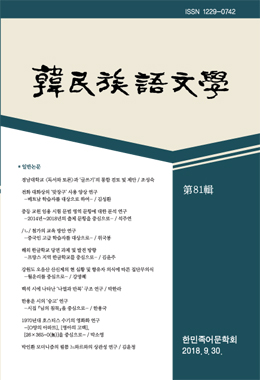본고는 유럽 지역, 그 중에서도 특히 프랑스 소재 한글학교의 운영 현황과 특성을 살펴보고, 주요 쟁점을 검토한 후, 해외 한글학교의 당면 과제와 해결 방안에 대해 논하는 것을 목적으로 하였다. 이를 위해 현지 학교장과 교사 면담, 수업 참관 등을 실시하였고 이를 통해 몇 가지 시사점을 도출하였다. 프랑스는 파리 소재 한글학교와 지방 소재 한글학교의 현황에 큰 차이가 있다. 학교의 역사와 규모에도 차이가 있고, 학습자 구성이 크게 다르다. 파리의 한글학교는 재외동포 유아동과 청소년 학습자가 주를 이루고, 지방한글학교는 외국인 성인 학습자 비율이 높은 편이다. 체류 기간에 따른 차이도 있다. 이러한 이유로 한국어 교수-학습의 목표와 학습자 동기, 교육과정과 수업 운영 방식도 차이가 있을 수밖에 없다. 따라서, 프랑스 소재 한글학교의 발전을 위해 첫째, 재외동포와 외국인 학습자를 대상으로 한 차별화된 교육과정과 교재 등 학습 자료 개발이 필요하고, 수업에 활용할 방안, 교수법 개발 등이 필요하다. 둘째, 학습자의 연령별 변인에 따른 교재 및 교수 자료, 교수법 개발도 시급하다. 셋째, 초중고 학생의 경우 현지 정규학교 및 교육과정과의 융합을 위한 장기적 계획과 실천이 필요하다. 넷째, 단기 체류자와 영구거주자 사이의 차이도 고려해야 한다. 다섯째, 교사 교육과 재교육의 문제도 해결해야 할 과제이다. 여섯째, 현지 지역사회와 공생의 관계를 유지해 장기적 발전 방향을 마련하는 일도 중요하다. 마지막으로, 한글학교를 통해 한국어를 학습할 수밖에 없는 외국인 학습자들의 수용 방안에 대해서도 고민이 필요해 보인다. 재외동포 대상 한국어교육은 너무나 다양한 변인들이 존재하기 때문에 논의의 범주도 매우 광범위할 수밖에 없다. 해외 여러 지역 여러 국가 소재 한글학교와의 정보 교환 및 차별화 방안, 현지 지역사회안착 및 조화를 위한 방안, 교육 내용 및 수업 설계의 현지화, 교육과정 차별화 등에 대한 숙고와 논의가 지속적으로 활발히 진행되어야 할 것이다.
This study reviews current status of Korean language schools in France, discusses major issues, and tries to find future directions for schools. The investigator of this study observed classroom education of Korean language schools in France and interviewed principals, teachers, parents and students of schools. Findings and implications are as follows. First, there is a need to develop tailored and differentiated curriculums, educational materials, and teaching methods for oversea Korean students and foreign students. Second, education materials and reference materials for teachers should be diversified considering various ages and generations of students. Third, it would be better if curriculums, planning, and practices of Korean language schools are coordinated with public schools in the target country. Fourth, Korean language schools’ education needs to consider differences between shortterm residents and permanent residents in the country. Fifth, education of teachers of Korean language schools should be considered seriously.
Meanwhile, there are much needed confronting tasks of Korean language schools that should be discussed, including issues associated with information exchange among Korean language schools in various regions, measures for how Korean language school can root in the community and get along with residents, alternatives for domestication of educational contents, and designs of educations. This study suggests that all these issues should be discussed continuously to have successful Korean language education in foreign countries.




